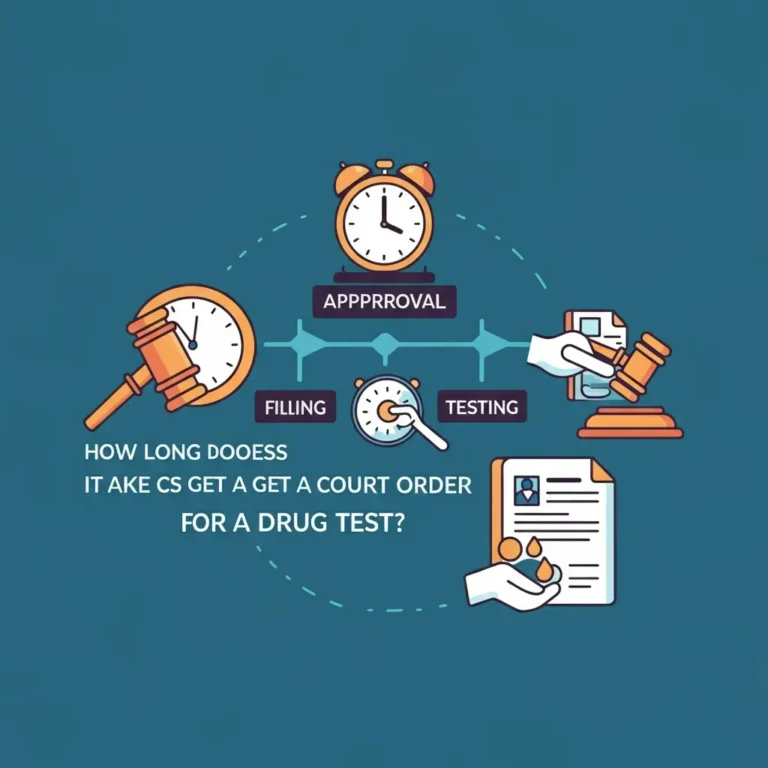How Long Does It Take to Change Your Name in Texas?
Table of Contents
Introduction
Changing your name can be a significant step, whether it’s due to marriage, divorce, or a personal desire to reflect your identity better. In Texas, like in many other states, the process involves legal procedures that must be followed in order to ensure the state and all relevant authorities recognise your name change.
If you’re considering a name change, one of the first questions you may have is: How long does it take to change your name in Texas? This article will explain the entire process of changing your name in Texas, including the steps involved, timelines, costs, and what happens after your name change is complete.
Why Would You Want to Change Your Name in Texas?
People change their names for various reasons, some of which are personal and others that are legal. Here are a few common reasons people seek a name change in Texas:
- Marriage: Many people change their last names after getting married. Typically, a spouse will take their partner’s last name, but some individuals choose to hyphenate their names or retain their maiden names.
- Divorce: After a divorce, a person may want to revert to their maiden name or change to another name entirely. This process is commonly included in divorce proceedings, but in some cases, individuals may need to apply separately for a name change.
- Personal Choice: Some individuals may wish to change their names for reasons related to identity, cultural preferences, or to distance themselves from a past association.
- Gender Transition: People who undergo a gender transition may change their name to reflect their gender identity.
- Minor’s Name Change: Parents or legal guardians may seek to change a child’s name for a variety of reasons, such as a change in family structure or a desire to align the child’s name with the family’s last name.
Understanding the reason for your name change helps clarify the steps and timeline for your application.
The Legal Process for Changing Your Name in Texas
Changing your name in Texas involves a specific legal process. Below is a step-by-step breakdown of how to legally change your name:
Filing the Petition for Name Change
The first step in the name change process is to file a petition in the county court where you live. The petition must include your current name, the name you wish to adopt, and the reasons for the change. If you are changing the name of a minor, the petition will be filed by the parent or legal guardian.
Required Documentation
Along with your petition, you will need to provide certain documents to the court, such as:
- Proof of identification (driver’s license, passport, etc.)
- Proof of residency (a utility bill or lease agreement)
- Court-approved fingerprint background check
- Any legal documents that explain the reason for the name change (e.g., divorce decree, marriage certificate, or court order for gender transition)
If the name change is for a minor, additional documentation, such as the child’s birth certificate and proof of parentage or guardianship, will also be required.
Background Check and Fingerprints
A background check is typically required as part of the name change process, especially if you are changing your name for reasons unrelated to marriage or divorce. The Texas Department of Public Safety (DPS) performs background checks, and you will need to provide your fingerprints. This is to ensure that the request for a name change is not being made for fraudulent purposes.
The background check usually takes 1-2 weeks to process, and it is a critical step in ensuring that the name change does not create legal or criminal complications.
Court Hearing
Once the petition and all required documents are submitted, a court hearing will be scheduled. The hearing allows the judge to review your petition and ensure there are no objections to the name change. The judge may ask questions about your reason for the name change and confirm that everything is in order.
In most cases, the court hearing will take 15-30 minutes. However, if there are complications or objections to the name change, it could take longer.
Finalising the Name Change
If the judge approves your petition, they will issue a court order granting your name change. Once the court order is signed, you are legally allowed to use your new name.
The finalisation process generally takes 1-2 weeks, depending on the court’s schedule and administrative processing time. Once you receive the signed court order, you can begin the process of updating your identification and records.
How Long Does It Take to Change Your Name in Texas?
The time it takes to change your name in Texas can vary based on several factors, including whether the petition is for an individual or a minor, the complexity of the case, and how quickly the required documents and background checks are processed.
General Timeline
- Initial Petition Filing: Filing the petition itself can be done quickly, usually within a day or two if all the necessary documentation is available.
- Background Check and Fingerprints: The background check process can take anywhere from 1-2 weeks, depending on how quickly the Texas Department of Public Safety processes the fingerprinting and background check.
- Court Hearing: Once the petition is filed and the background check is cleared, the court hearing is typically scheduled within 4-6 weeks. The exact timing will depend on the court’s availability.
- Finalisation: After the hearing, the court will issue a ruling, and you should receive the final court order within 1-2 weeks. This order will grant your name change, allowing you to update your identification and other records.
Overall, the entire process can take anywhere from 2 to 3 months, depending on the specific circumstances.
Factors That Affect the Time Frame
- Urgency of the Case: If the name change is urgent (e.g., for a newly married couple or a gender transition), some courts may expedite the process.
- Complexity of the Case: If the petition is more complicated (e.g., a name change for a minor, or a change in cases of criminal records), the process may take longer.
- Court’s Schedule: The time required to schedule a court hearing will depend on the availability of the court and the number of cases they are handling.
- Background Check Delays: If there are any issues with the background check or fingerprinting, this could delay the process.
Costs Associated with Changing Your Name
Changing your name in Texas involves several fees, including filing fees and the cost of fingerprinting for the background check. Here’s a breakdown of the typical costs:
- Filing Fee: The fee for filing a petition to change your name is typically around $150 to $250, depending on the county.
- Background Check: The cost for fingerprinting and the background check is usually around $50 to $100.
- Court Costs: There may be additional court fees, particularly if the case is complex or if it involves a minor. These costs vary by county.
Overall, you can expect to pay between $200 $400 to complete the name change process, not including potential costs for legal representation (if applicable).
What Happens After Your Name Change is Finalised?
Once your name change is approved and the court order is signed, there are several steps to ensure all relevant authorities recognise your new name.
Updating Your Records
The next step is updating your name on all legal and official documents, including:
- Driver’s License or ID: You will need to update your driver’s license or state ID at the Texas Department of Public Safety (DPS). You will likely need to provide your court order as proof of the name change.
- Social Security: You must update your Social Security records to reflect your new name. This can be done by submitting your court order to the Social Security Administration.
- Bank Accounts and Credit Cards: Inform your bank or credit card companies of your name change, and update your records with them.
- Other Documents: Don’t forget to update your name with other institutions like your employer, health insurance provider, utilities, and any other relevant agencies.
The process of updating these documents can take anywhere from a few weeks to a few months.
Special Considerations
There are a few special considerations to keep in mind when changing your name in Texas:
Changing Your Name After Marriage or Divorce
When changing your name after marriage or divorce, the process can be quicker. In some cases, the name change can be done as part of the marriage or divorce proceedings without the need for a separate court order.
Name Changes for Minors
Changing the name of a minor in Texas requires the consent of both parents or legal guardians. The petition must include the child’s birth certificate and any relevant custody documents. The timeline for changing a minor’s name may be longer, as additional documentation and approval are required.
Frequently Asked Questions (FAQs)
How much does it cost to change your name in Texas?
The cost of changing your name in Texas typically ranges from $200 to $400, including filing fees and background check costs.
Do you have to go to court to change your name in Texas?
Yes, in most cases, you will need to go to court to obtain a legal name change in Texas.
Can you change your name without a court order in Texas?
No, a court order is required to legally change your name in Texas, except in specific cases like marriage or divorce.
How long does it take to change a name for a child in Texas?
The timeline for changing a minor’s name in Texas may take 2 to 3 months or longer, depending on the complexity of the case and required documentation.
What documents do I need for a name change in Texas?
You will typically need proof of identification, proof of residency, a background check, and any relevant legal documents (e.g., marriage certificate or divorce decree).
Final Thoughts
Changing your name in Texas involves a legal process that typically takes 2 to 3 months from the time you file your petition until you receive your final court order. The process includes multiple steps, such as filing the petition, submitting documentation, undergoing a background check, and attending a court hearing. While there are costs associated with the name change, many people find it to be a worthwhile investment in their personal or family identity.
By understanding the steps, timeline, and costs involved, you can be better prepared for your name change journey in Texas.







